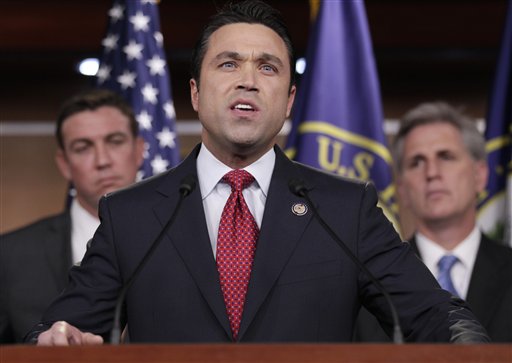Grimm: Don’t give Facebook password to your boss!

AP11040715795.jpg
Should bosses be able to require workers to divulge the passwords to their Facebook or Twitter accounts?
A bi-partisan trio of lawmakers says, “no way!”
US Rep. Michael Grimm (R-C-Brooklyn-Staten Island) is joining forces with House colleagues across the aisle, US Rep. Eliot Engel (D-Bronx-Westchester) and US Rep. Jan Schakowsky (D-Illinois), to push for passage of the Social Networking Online Protection Act. The bill would protect the users of social networking sites like Facebook and Twitter from having to divulge their personal information to employers, schools and universities.